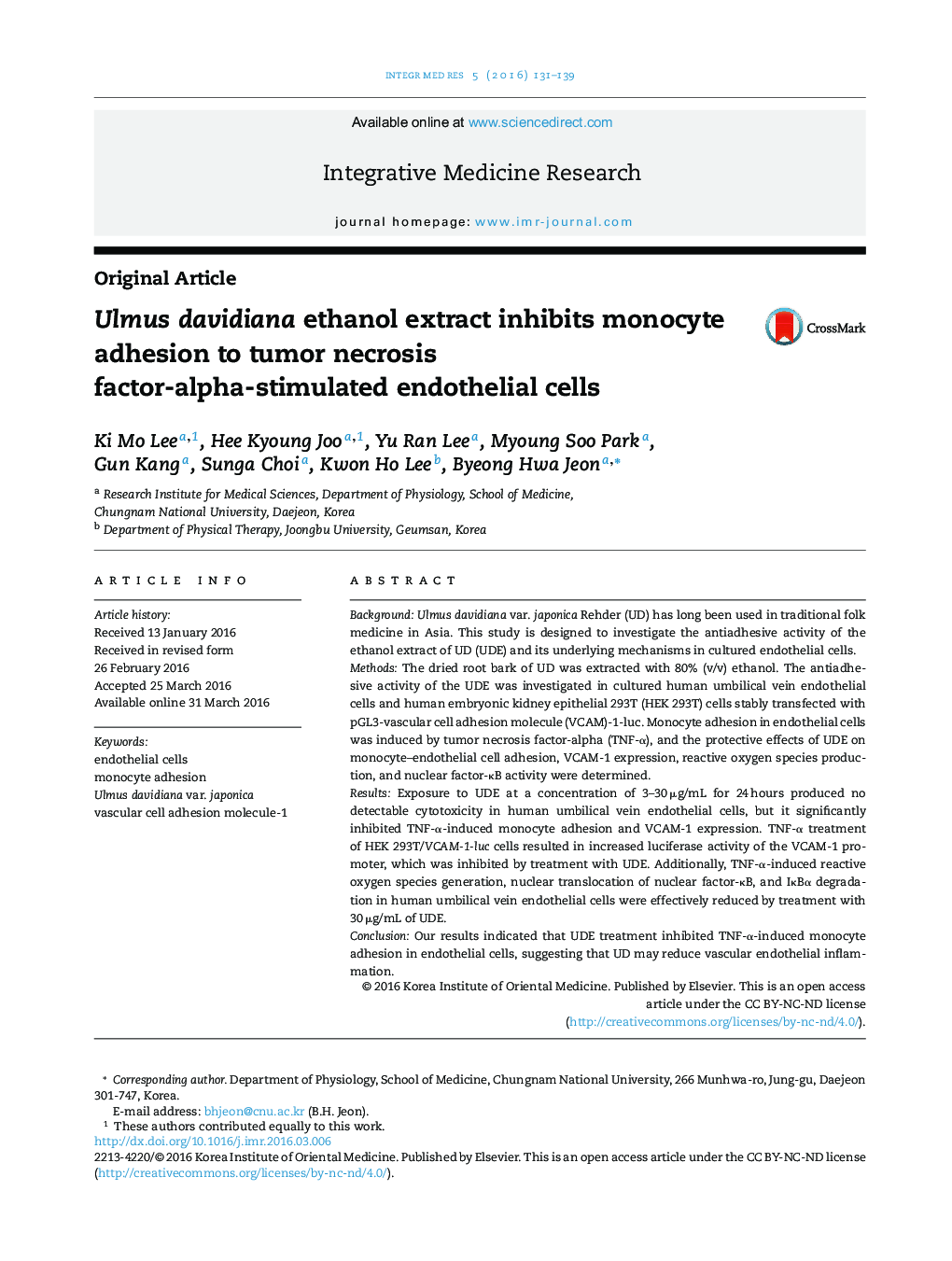| Article ID | Journal | Published Year | Pages | File Type |
|---|---|---|---|---|
| 3098158 | Integrative Medicine Research | 2016 | 9 Pages |
BackgroundUlmus davidiana var. japonica Rehder (UD) has long been used in traditional folk medicine in Asia. This study is designed to investigate the antiadhesive activity of the ethanol extract of UD (UDE) and its underlying mechanisms in cultured endothelial cells.MethodsThe dried root bark of UD was extracted with 80% (v/v) ethanol. The antiadhesive activity of the UDE was investigated in cultured human umbilical vein endothelial cells and human embryonic kidney epithelial 293T (HEK 293T) cells stably transfected with pGL3-vascular cell adhesion molecule (VCAM)-1-luc. Monocyte adhesion in endothelial cells was induced by tumor necrosis factor-alpha (TNF-α), and the protective effects of UDE on monocyte–endothelial cell adhesion, VCAM-1 expression, reactive oxygen species production, and nuclear factor-κB activity were determined.ResultsExposure to UDE at a concentration of 3–30 μg/mL for 24 hours produced no detectable cytotoxicity in human umbilical vein endothelial cells, but it significantly inhibited TNF-α-induced monocyte adhesion and VCAM-1 expression. TNF-α treatment of HEK 293T/VCAM-1-luc cells resulted in increased luciferase activity of the VCAM-1 promoter, which was inhibited by treatment with UDE. Additionally, TNF-α-induced reactive oxygen species generation, nuclear translocation of nuclear factor-κB, and IκBα degradation in human umbilical vein endothelial cells were effectively reduced by treatment with 30 μg/mL of UDE.ConclusionOur results indicated that UDE treatment inhibited TNF-α-induced monocyte adhesion in endothelial cells, suggesting that UD may reduce vascular endothelial inflammation.
